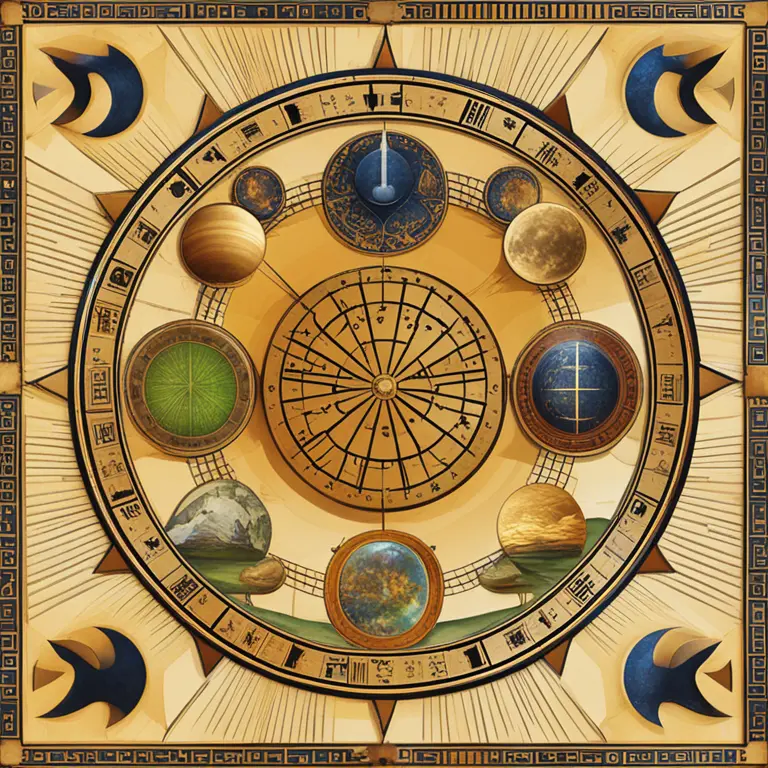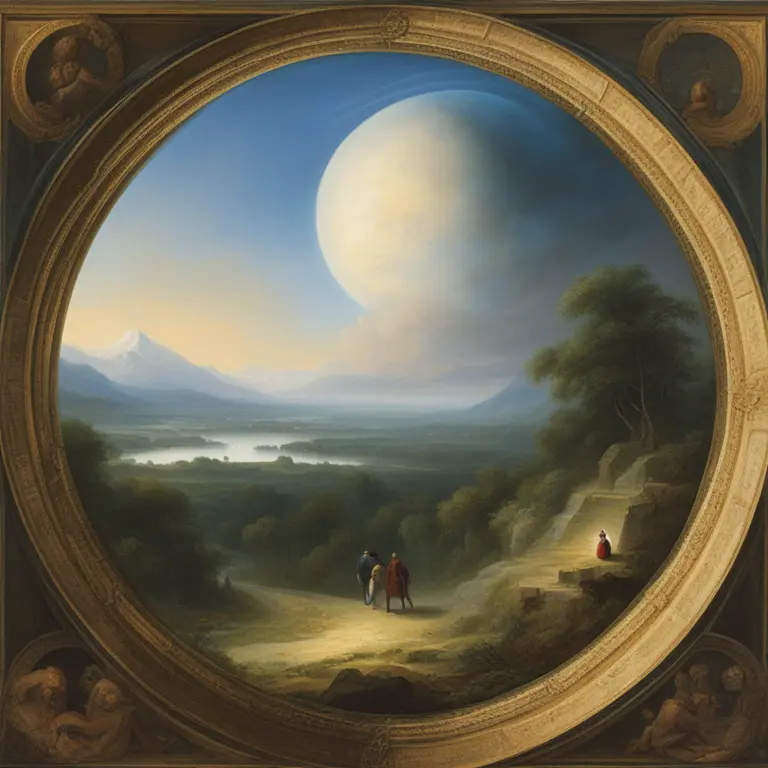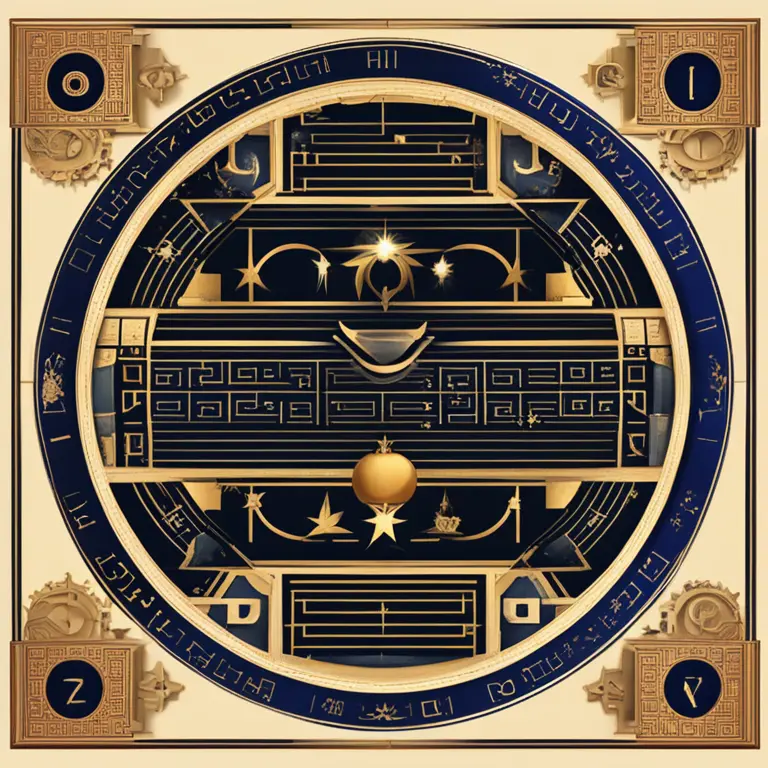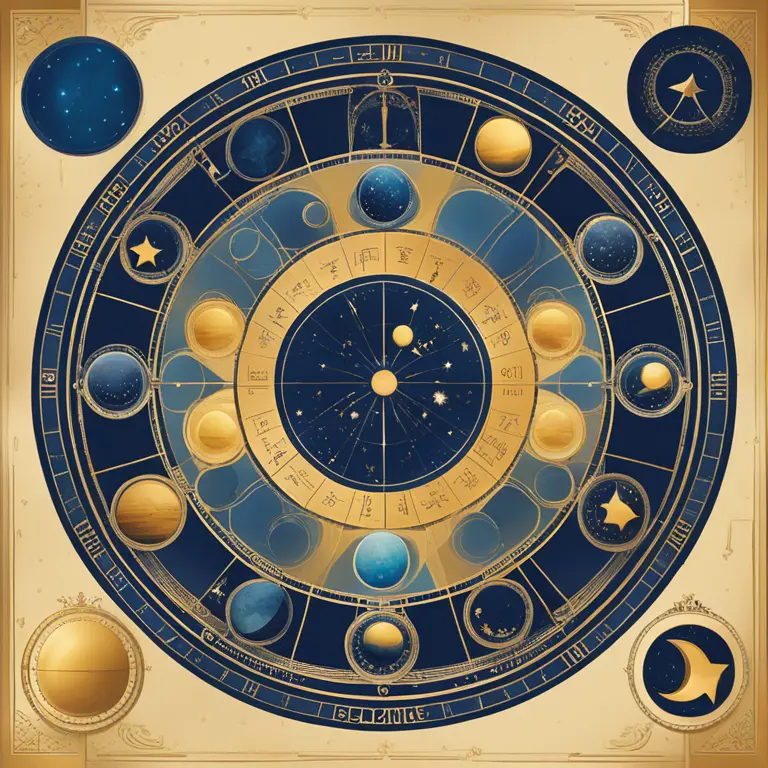
The Genesis of Astrology: A Celestial Chronicle
Embark on a journey through the stars as we divulge the origins of astrology and how ancient civilizations looked to the heavens to find guidance.
article by Priya Deshmukh
The Dawn of Astrological Thought
The origins of astrology can be traced back to the ancient need for measuring time and predicting seasonal changes, fundamental for agricultural societies. Deeply intertwined with astronomy, early astrological practices emerged as a blend of celestial observation and mystic interpretation. The Babylonians, especially around 2nd millennium BCE, are often accredited with developing one of the first organized systems of astrology. Their astrological charts allowed them to predict the recurrence of seasons and certain celestial events.

From Observation to Prediction
Astrology's evolution saw its transformation from celestial recordings for practical purposes to a predictive tool for human affairs. The ancients noticed correlations between planetary movements and terrestrial events. This led to the zodiac system, dividing the sky into twelve parts, which became central to predicting individual destinies based on the positions of the stars and planets at the time of birth, a practice that continues in contemporary astrology.

Spreading Across Civilizations
The astrological system of the Babylonians spread to other cultures, becoming a significant aspect of the Hellenistic world after Alexander the Great's conquests. This resulted in the fusion of Babylonian and Greek knowledge which transformed astrology into a more elaborate form. The Greeks contributed the geometric angles, known as aspects, which are essential in interpreting the astrological chart, and Romans later popularized astrology throughout their vast empire.

The Enlightenment's Challenge
During the Enlightenment, astrology's reputation shifted significantly as empirical science began to take root. The scientific method demanded verifiable evidence that astrological assertions could not provide, leading to a schism between astrology and the new sciences of astronomy and psychology. While astrology's credibility waned in scientific circles, it maintained popular appeal and incorporated psychological archetypes in the 20th century.

Astrology in the Digital Age
Despite ancient origins, astrology has found a resurgence in the digital realm. Engaging with horoscopes and astrological predictions has become a mainstream activity fueled by online platforms and social media. The accessibility of digital birth charts and the instant availability of horoscope readings have perpetuated astrology's relevance into the modern day. Technology has also enabled personalized astrological analyses, allowing a more individualized experience for astrology enthusiasts.
The Continuous Cosmic Fascination
Even beyond 2024, astrology's appeal persists as it provides a framework for individuals to contemplate their lives through a cosmic perspective. Whether viewed as a form of entertainment or a deeper spiritual experience, astrology retains its charm by instigating self-reflection and offering a universal language that connects people with the mystery of the universe and their place within it.
Published: 1/12/2024
Modified: 1/12/2024
More predictions
Come back here soon to learn more about yourself and your future


The Connection Between Astrology and Astronomy
Discover how astrology and astronomy share a historical background yet diverge in their modern-day applications and beliefs.


Between Astrology & Astronomy
Delve into the intriguing relationship between astrology and astronomy, the ancient and modern perspectives on celestial observation.


The Precision of Astrology Readings: Myth or Reality?
Delving into the accuracy of astrology readings, this article examines the reliability of horoscopes and astrological predictions in the modern age.